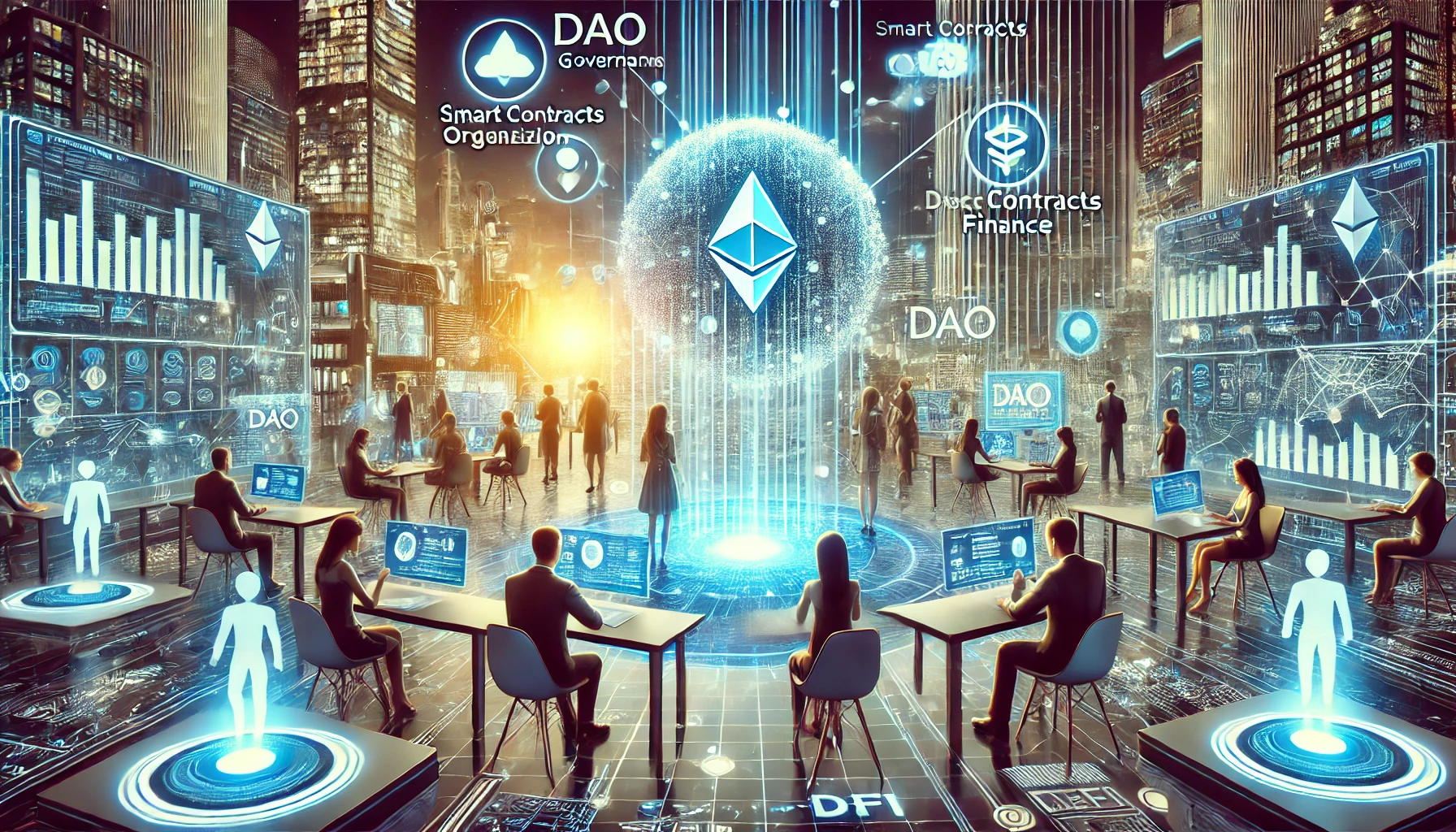The Rise of DAOs: How Decentralized Autonomous Organizations Are Transforming Governance in DeFi Projects

A New Era of Governance: From Hierarchies to DAOs
Governance has been a sticking point in almost every human endeavor, from ancient monarchies to modern-day corporate boards. But in the world of decentralized finance (DeFi), the governance models are about as old school as an iPhone 4. Enter DAOs—decentralized autonomous organizations—a fancy way of saying 'power to the people,' or rather, to the token holders. But what exactly are DAOs doing that’s so revolutionary? In short, they’re making decisions more democratic, transparent, and... decentralized. Who needs a CEO when you’ve got thousands of stakeholders voting on every move, right?
The Mechanics of a DAO: Code as Law, and Token Holders as the Jury
At their core, DAOs are run on smart contracts, which are pieces of self-executing code that live on the blockchain. These smart contracts hold the rules of the DAO and can automatically enforce decisions once certain criteria are met. Think of it like a vending machine: you put in your coin, punch in your snack code, and out comes a bag of chips—except in this case, the chips are governance decisions, and the coins are your voting tokens. The beauty here is that there’s no middleman (bye-bye traditional governance structures). Token holders, or DAO participants, cast votes, and decisions are carried out without human intervention, reducing the chances of corruption or influence-peddling. But it’s not all sunshine and decentralization. The technicalities behind these DAOs are not trivial. The code that governs these DAOs can be as complex as tax law, requiring rigorous audits and testing to ensure they behave as expected.
How DAOs Democratize Governance in DeFi
In the DeFi space, governance decisions are critical—whether it's adjusting protocol fees, deciding on liquidity mining rewards, or even implementing a major upgrade. DAOs put these decisions directly into the hands of token holders. Projects like MakerDAO and Uniswap are prime examples of how DAOs are shaping DeFi ecosystems. For instance, in MakerDAO, holders of the MKR token vote on key issues such as stability fees and the collateralization ratios for its stablecoin, DAI. The token holders essentially become the board of directors, deciding the future of the protocol. The power is decentralized across a global community of stakeholders, and if you own governance tokens, congratulations—you’ve got a say in how things work.
Challenges of DAOs: Voting Apathy and Whale Domination
Now, while DAOs promise utopian levels of democracy, they come with a few real-world caveats. One major issue is voting apathy. Much like in traditional politics, many token holders simply don’t vote. Whether it’s due to the technical barrier, lack of time, or plain indifference, low voter turnout can be a real problem. In the case of MakerDAO, for example, there have been instances where key decisions were made with less than 10% voter participation. Then, there’s the issue of 'whale domination'—where a handful of large token holders can significantly influence outcomes. Imagine if Elon Musk had enough voting power to single-handedly steer an entire DAO—now you’ve got a potential oligarchy brewing within a supposedly decentralized system. This is why projects are constantly experimenting with various voting mechanisms, such as quadratic voting, to ensure more equitable participation.
A Snapshot of DAO Growth: Numbers Don’t Lie
It’s not just buzz—DAOs are on the rise, and the numbers back it up. According to a recent report by ConsenSys, the total value locked (TVL) in DAOs has surged to over $21 billion in 2024, up from just $10 billion the previous year. Moreover, the number of active DAO proposals has increased by 200% year-over-year. Projects like Aave, Compound, and Yearn Finance have embraced DAO governance, showing that the trend is not just about early adopters but gaining mainstream traction. This growth isn’t limited to DeFi projects either. DAOs are expanding into other areas like decentralized social media, art collectives, and even philanthropic efforts. It’s like watching democracy on steroids, fueled by the power of blockchain.
Future Prospects: Will DAOs Reinvent Traditional Governance?
Looking ahead, the potential of DAOs to disrupt not just the crypto space but traditional governance models is huge. Imagine a world where corporate boards are replaced by token-holding communities or where government decisions are made via decentralized voting systems. In fact, Wyoming recently became the first U.S. state to legally recognize DAOs as a type of LLC, opening up new possibilities for integrating DAOs into the broader economy. That said, DAOs still face hurdles around scalability and security. Can a DAO scale to millions of participants and still make decisions efficiently? Will DAOs be robust enough to handle cyberattacks or governance failures? These are questions that will need to be answered as DAOs evolve.
Conclusion: Are You Ready to Join the DAO Revolution?
So, will DAOs completely replace traditional governance structures, or will they remain a niche tool within the crypto world? One thing is for sure—they’re not going away anytime soon. As the DeFi ecosystem continues to grow, DAOs will play an increasingly important role in shaping its future. Whether you’re a crypto enthusiast or just DAO-curious, the rise of decentralized governance offers an exciting glimpse into how power structures could evolve. What do you think? Could DAOs be the future of democracy, or are they just another tech fad? Share your thoughts in the comments or take the discussion to your favorite social platform.



